Aleksey Kudrin&Co. to take creativity temperature of Kazan
Representatives of creative industries of the capital of Tatarstan complain about the absence of creative atmosphere and the citizens' cynicism
As Realnoe Vremya found out, results of how representatives of creative industries are and their contribution to the economy of 9 largest cities of Russia, including Kazan, are due to be published in October. PricewaterhouseCoopers is preparing the document together with Сalvert Forum. The former Minister of Finance and a person from President's team Aleksey Kudrin patronises and promotes the latter in our country. Unfortunately, the results may be disappointing for Kazan. Last summer very Calvert Forum noted in its presentation that the capital of Tatarstan 'lost the majority of its authentic wooden architecture'. At the same time representatives of the Kazan 'creative class', who were enquired by the writers of the report, are down in the mouth because of the 'over-protective assessment cynicism' of the residents of the city where 'creative energy is reducing'.
British foundation to study the creative potential of Kazan
In August, Сalvert 22 Foundation dedicated to the presentation of contemporary art from Russia and Eastern Europe and PricewaterhouseCoopers international consulting company announced they were going to organise a big research called Russian Cities Creative Capital. They offered every 'professional of creative industries' to take part in it by answering the questions online. Calvert thinks this index will enable to define the contribution of creative industries to the economy of cities and assess their influence on their investment attractiveness. Questionnaires will be an important part of the research: 'media and communications, culture and art, IT and digital, design and fashion, academic community'. Respondents are offered to assess the development level of creative industries in Kazan. In the questionnaire, creative class representatives from nine cities (Kazan, Voronezh, Moscow, Novosibirsk, Tyumen, Yekaterinburg, Krasnodar, Nizhny Novgorod, St. Petersburg) are offered to estimate the economic state of the city (level of unemployment, average salary) on a 10-point scale: both the current state of affairs and development dynamics in the last 3-5 years. Apart from it, a respondent is to assess urban amenities (including parks and public spaces), cultural life of a city (theatres, galleries, international festivals), social infrastructure. The questions total 53.
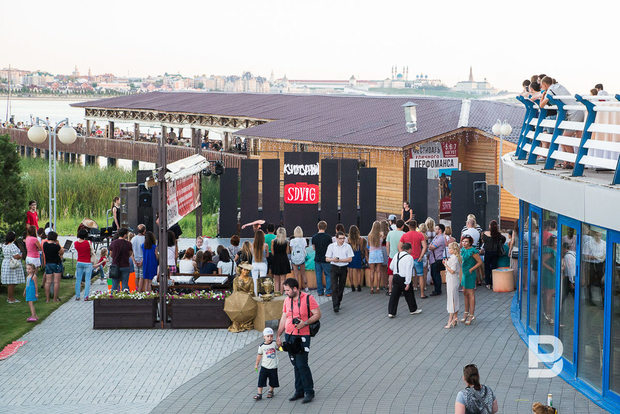
Kazan 'lost the majority of its authentic wooden architecture' because of 'window construction'
According to the presentation, which was published on the page of the forum, one can say that creativity and culture are not at a good level in Kazan… However, as Calvert Forum Russia representative Maria Buryak told Realnoe Vremya, the research has not finished yet, the final results will be published at the end of October. As for the presentation, it is a publication issued for the St. Petersburg International Economic Forum. So it is the first stage only: art and general information of the cities are likely to be given there'.
Several pages of the presentation are about the capital of the Republic of Tatarstan. In the introduction to the story about Kazan (40 brochures or 22 pages in Adobe Reader) it is told Kazan is the most multi-national city of the country, a Russian analogous model of the melting pot that was officially called the third capital of the Russian Federation in 2009 which has hosted two big events – a 1,000-year jubilee and the Universiade. Kazan got new roads and five-star hotels, craft bars and independent coffee houses.
But here there is a disadvantage or 'however': however, together with them, Kazan 'lost the majority of its authentic wooden architecture' that was massively demolished in order to give the way to 'constructions of the century'. Another disadvantage is in the second paragraph: despite a big course for the modernisation of city parks and riverbanks, which Tatarstan set in 2015, despite a great variety of cultural events, representatives of the creative community often remember 'window constructions' that look like utopian mottos of the recent past. It is difficult to know how many people share this opinion (the results of the research are to help here as well as the activity of people who fill in the forms).
Nevertheless, the overall picture is unpleasant. The 'story of Kazan' starts with traditional opinions of executives and people who are close to power like President of Tatarstan, the KFU docent Svetlana Khusnutdinova who are sure about creative future of Kazan, and, it goes without saying, Natalia Fishman who thinks that a comfortable urban environment has appeared in Tatarstan where people want to move to study and work. It is said the people of Tatarstan have skills for productions – 'discipline and punctuality'.
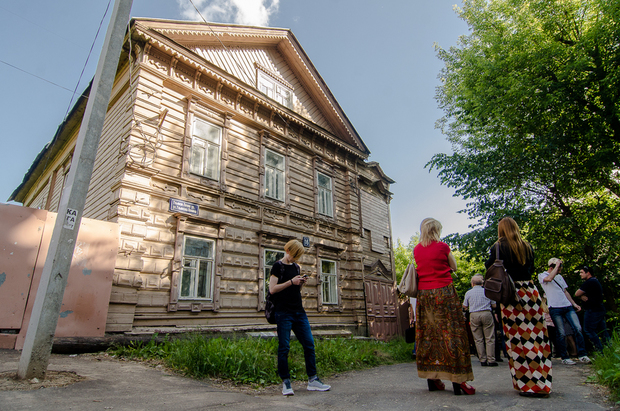
'Kazan has a colossal level of some over-protective assessment cynicism'
But when Calvert Forum representatives decided to enquire the creative class of Kazan about it, it turned out they were pessimists, to put it mildly. Authors of the research write that despite all attempts to create comfortable conditions for small business, independent and 'creative' business oriented to the young is developing with difficulty.
So, the director of the Insular City of Sviyazhsk Museum-Reserve and co-founder of Live City foundation Artyom Silkin confidently stated: 'Today Kazan doesn't have a necessary economic rationale in order to become a creative centre.' The thing is that there is no market demand for services of the cultural sector, lack of money to attract specialists. Taste and consumption traditions of creative services in the society are also a reason: 'Kazan almost has local scientists: art experts, critics, art theorists; there are not serious education programmes in this field.'
Trying to unite designers from the Republic of Tatarstan who deal with the modern design to Rukami community, Radmila Khakova supposes Kazan has never aspired to become a creative centre of the country. 'It aspired to become the third and sports capital. But in 2016 I can't imagine it as a creative one. Openness is needed for art. And Kazan has a colossal level of some over-protective assessment cynicism,' she thinks.
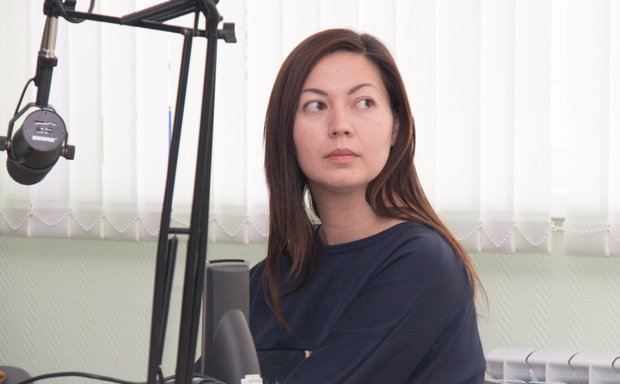
Calvert Forum about Innopolis:'Innopolis has strays and has celebrated the first wedding'
On the page dedicated to Innopolis, which is the 'youngest city of Russia', it is told the city doesn't have many activities, in spite of the greatness of the infrastructure. Calvert Forum representatives suppose it is difficult to imagine that Innopolis will have the so-called 'third places'. Even if territories were prepared for them in the residential area, it is not profitable to open them here. 'Now Kazan, which is 40 minutes away from the city by car, is compensating the deficit of certain goods and services that Innopolis doesn't have. Innopolis doesn't have creative spaces but do has strays and has celebrated the first wedding. This already remotely remembers a city.'
Finally, judging by four small interviews of the Kazan creative class representatives, the score is 2:2. Lyudmila Andreyeva, who is an architecture and founder of Commune clothing brand 'that unites artists and designers of the city' thinks that it is not comfortable to work as a fashion designer in Kazan:
'Firstly, the city has few sites to sell products. Secondly, it is difficult to get a good technology education in Kazan. Thirdly, there are few lectures and exhibitions dedicated to the modern clothing design. Fourthly, in my opinion, people are not ready for new products made in Kazan. They like the mass market. People who work in fashion in Kazan are quite closed. They are not ready to cooperate. I think our city is difficult for art and development. The city is big, many things happen there. But the creative energy reduces . It is connected with the mentality and aggressive architectural environment. If I tell my acquaintances or parents that I want to work in fashion, they start to laugh,' she tells.
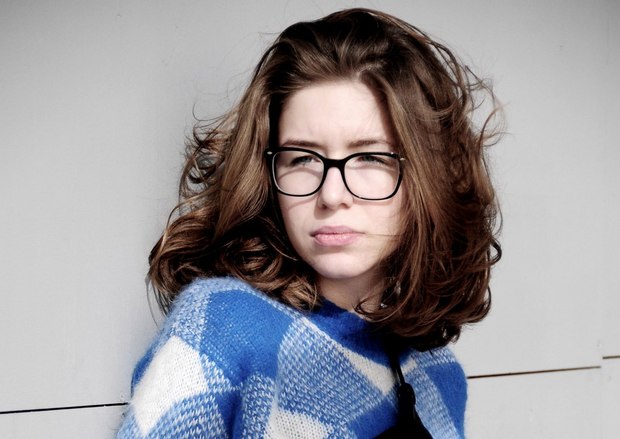
'It affects people's preferences, of course'
Andreyeva is not convinced that there will be drastic changes in this field in 10 years, though she hopes that 'one day the city will open to its citizens, and they will be friendlier'. The founder of QULLAR industrial design studio Konstantin Maksimov thinks Kazan has big problems with the furniture industry and industrial design, in general: 'If we visit any furniture store, we will see some horrible sofas or Chinese versions of cult chairs. It affects people's preferences, of course'.
The editor-in-chief of Inde Yulia Turanova surprisingly notes that Tatarstan has been one of the latest regions to have a 'lifestyle' mass media. But their number reduced in August 2015, many of them closed. Even very Kazan doesn't have many events, while events are the key tool. As a result, workers of the newspaper have to 'look for a variety of absolutely different reasons for news ('with plots that support the Tatar identity and has a response outside the city').
Moreover, she thinks it is difficult to call Kazan a big city. However, the director of Spotmakers video studio Mikhail Marizov assures 'Kazan was a backwater that was like any other Russian city' just 10 years ago. If the current tendency continues, it will help to change Kazan much for better in the short run.
Aleksey Kudrin's team is trying to persuade the West in the existence of the creative 'New East'…
We should also note that Сalvert Forum is not a minor non-profit organisation with foreign influence, which was created by means of foreign money. It is a project founded with direct support of the former Ministry of Finance of Russia Aleksey Kudrin. The forum was founded by the Faculty of Liberal Arts and Sciences of the St. Petersburg State University, where Kudrin works as a dean, and Calvert 22 Foundation. Very Calvert 22 Foundation presented The Calvert Journal in 2013 when it held its first Calvert Forum Conference. The ex-PM of Russia is also among the founders of the very foundation. Goals of all projects are close but different (and their sites are like two peas in a pod).

According to its founders, Calvert Forum is an international project that studies creative industries in different countries of the world and develops the creative economy in regions of Russia. The goal of the project is to answer the question what role the creativity should play in the development of regions of Russia, give recommendations on the creation of favourable infrastructure to support creative initiatives on the spot. Calvert Journal's task is to be a guide in the 'modern culture of the new East whose orbit consists of 'the Post-Soviet world, Balkans and former socialistic countries of Central and Eastern Europe'.
In other words, it is to show, for example, the British that Russia is able to make not only ballistic missiles and extract oil but also deal with the modern art.
This creativity and modern culture need to be grown and supported on the spot in order to tell about the creativity and culture of the 'new East' where, as Kudrin thinks, Tatarstan is present. In other words, in regions.
Malicious tongues, of course, could see in the goals of the Kudrin's team even the nurturing of a 'creacle culture' (creacle — a blending from 'creative' and 'class' – editor's note), about which in political terms – as well as about the political force of 'hipsters' — started to talk from the time of the protest rallies in Moscow, in particular, on Bolotnaya Square. However, now the fund and the forum of Kudrin are trying to distance themselves from politics and concentrate more on urban culture, the social environment of megapolises and on 'creative capital'.
The last time, Сalvert Forum asserted itself particularly in Kazan, where in April of 2015 took place the conference with the participation of Tatarstan President Rustam Minnikhanov, former Finance Minister Aleksey Kudrin, the deputy chief editor of the influential British business newspaper The Financial Times John Thornhill. That time the head of Tatarstan made a policy statement about the intention to make Kazan 'the hub for creative people from all over the country' and announced the creation of a grant fund to support creative industries. Thornhill acknowledged that required for the development of creative environment '3T' — technology, talent and tolerance – do exist in Tatarstan.
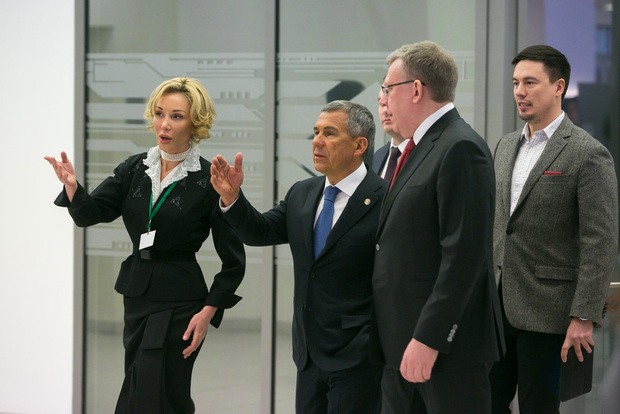
On the website of the forum you can see that the Kazan conference at the moment is the last in the portfolio of the organization (the previous ones were held in St. Petersburg in 2013 and in Voronezh in 2014). Moreover, the Kazan conference was highlighted on the map website: just after the section 'About us'. The last event, mentioned on the forum, also was held last year, when a round table 'Creative capital: methods of analysis and capacity study' took place in December 2015. There was little information about Сalvert Forum since then.
'… the other — is studying the tough position of media in the regions
However, political technology is being studied by the other team of Kudrin, and, accordingly, the other fund, which in recent years has been actively studying civil society and measuring the temperature of regional media. Thus, the Mediastandart Fund of the Committee of civil initiatives of the former Finance Minister in November last year made the rating of 85 Russian regions by the level of development of institute of mass information. It turned out that in more than a half of the regions the institute is working so-so. The residents of Tatarstan can be happy (unless, of course, they agree with the results of the rating) – Tatarstan became one of the eight 'green regions' with the A rating, along with Moscow and St.-Petersburg – here there is 'the positive state of the institute of mass information'. The rating was compiled based on the survey of 300-500 respondents in each region and was based on the following criteria: a critical attitude towards the received information, the desire to understand it, the amount of the time devoted to the different media, especially the Internet and TV, the credibility of local and regional media. So, in Tatarstan, there is 'a big demand for quality information' and the infrastructure is developed, the government and businesses are active in the interaction with society through the media.
In September of this year, the team of Kudrin has launched the study of the professional health of a journalist. In May, the Committee of civil initiatives plunged, including the Tatarstan society, in despair, by publishing 'the index of criticism of regional mass media', which were divided into four groups depending on the availability and quality of the criticism of the governors. The regions with almost no criticism were 28 – Tatarstan is among them, and, oddly enough, Moscow. 'There are regions where the authorities use the carrot in relation to the media, there are those that use the stick, and there are happy regions, where governors are just respected,' the experts commented on the results.